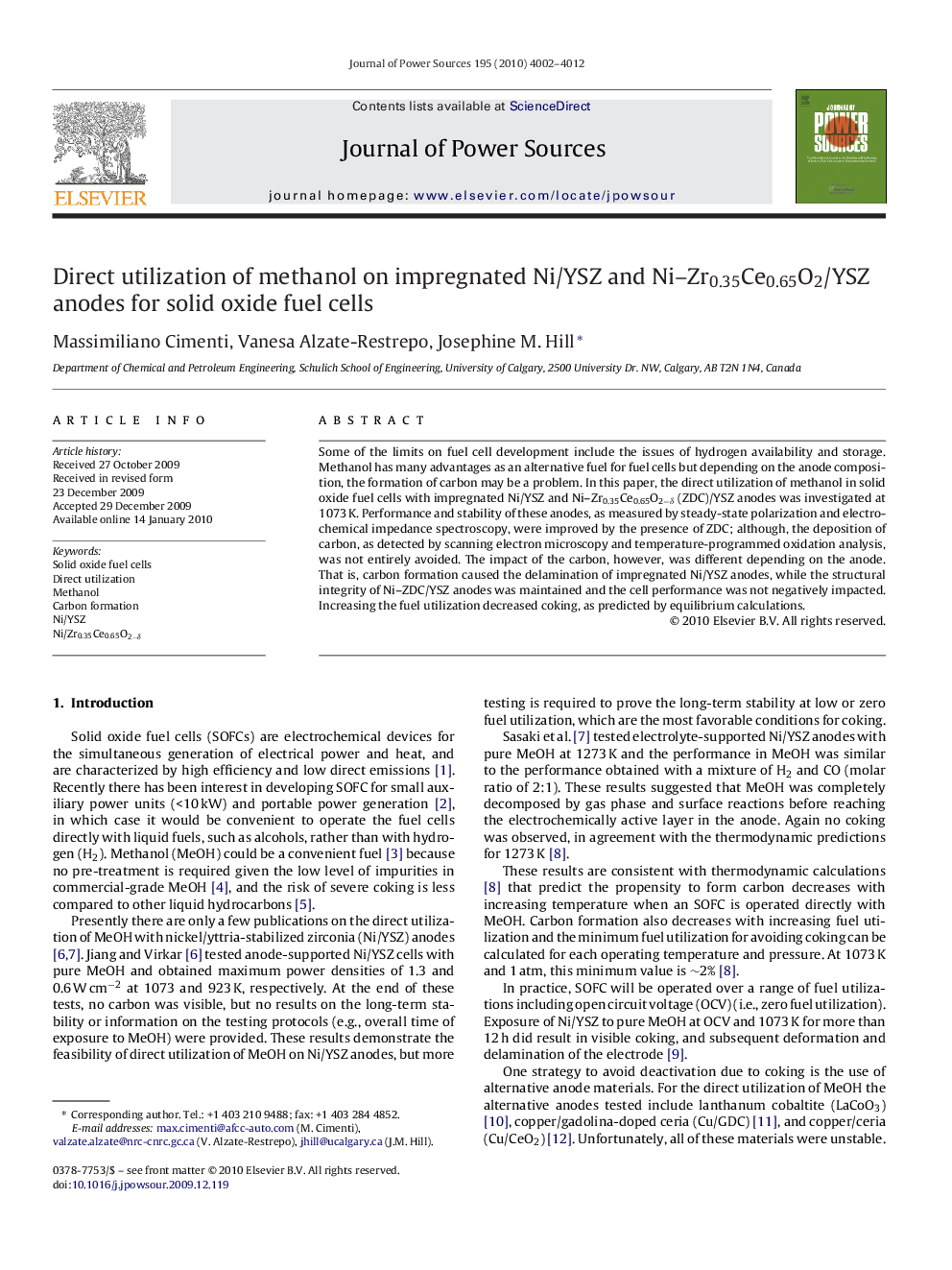| Article ID | Journal | Published Year | Pages | File Type |
|---|---|---|---|---|
| 1290322 | Journal of Power Sources | 2010 | 11 Pages |
Some of the limits on fuel cell development include the issues of hydrogen availability and storage. Methanol has many advantages as an alternative fuel for fuel cells but depending on the anode composition, the formation of carbon may be a problem. In this paper, the direct utilization of methanol in solid oxide fuel cells with impregnated Ni/YSZ and Ni–Zr0.35Ce0.65O2−δ (ZDC)/YSZ anodes was investigated at 1073 K. Performance and stability of these anodes, as measured by steady-state polarization and electrochemical impedance spectroscopy, were improved by the presence of ZDC; although, the deposition of carbon, as detected by scanning electron microscopy and temperature-programmed oxidation analysis, was not entirely avoided. The impact of the carbon, however, was different depending on the anode. That is, carbon formation caused the delamination of impregnated Ni/YSZ anodes, while the structural integrity of Ni–ZDC/YSZ anodes was maintained and the cell performance was not negatively impacted. Increasing the fuel utilization decreased coking, as predicted by equilibrium calculations.
